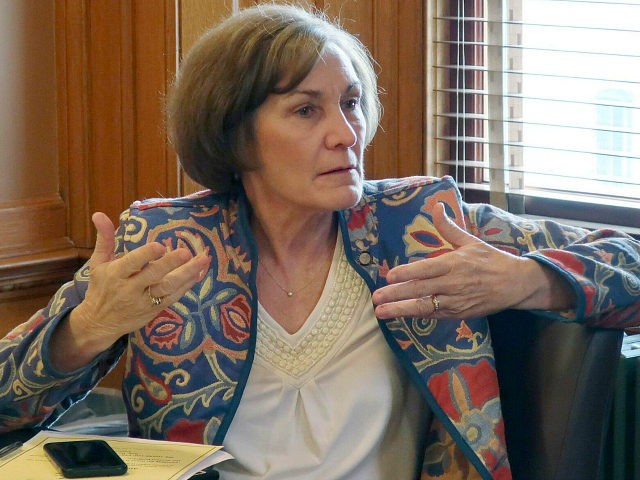Kansas Sen. Barbara Bollier (D) voted against a bipartisan bill that temporarily expanded telemedicine during the pandemic, but she supported the expansion of tele-abortions, enabling more women and girls to perform their own at-home, drug-induced abortions.
A retired anesthesiologist and a former Republican, Bollier is challenging U.S. Rep. Roger Marshall (R), a member of the American Association of Pro-Life Obstetricians and Gynecologists (AAPLOG).
In 2016, Bollier, then a state representative, supported a bill to repeal a ban on tele-abortions. The Associated Press reported Bollier said the bill was one of several that were “a reaction to attacks on women’s right to make health care choices.”
During the coronavirus outbreak, Planned Parenthood expanded its tele-abortion service — one its CEO called, “the silver lining” of the pandemic.
Mifepristone, the drug used to begin an induced abortion, is a medication “that definitely has dangers associated with it,” Dr. Christina Francis, an Indiana-based OB/GYN and chairman of the board of AAPLOG, recently said.
Francis said some immediate complications of mifepristone could be hemorrhage and infection and added there is “the possibility of failure, where the pregnancy doesn’t fully pass from the medication and then leading to sometimes the requirement for emergent surgery for that woman because of either ongoing bleeding or the risk of infection.”
Though she supported a repeal of a ban on tele-abortion four years ago, in June, Bollier voted against a bill temporarily expanding telemedicine during the coronavirus crisis because it would allow out-of-state physicians to treat Kansans.
According to the Kansas Health Institute, the bill allowed out-of-state physicians to practice telemedicine if they advise the Kansas Board of Healing Arts in writing and if they hold an unrestricted license to practice medicine in another state and are not the subject of an investigation or disciplinary action.
The Topeka Capital-Journal reported Bollier said she was alarmed the bill would enable out-of-state health care professionals who were not overseen by the state licensure board to treat Kansans.
“This creates a tremendous safety issue for the people of Kansas,” she said.
Bollier stated she follows “science,” but, with many other states allowing expanded telemedicine services that allow physicians in good standing from other regions to treat patients during the pandemic, the Democrat’s expressed reason for voting against these services appeared to be a concern over a change in regulations.
Ironically, on Sunday, Bollier tweeted Kansas needs “stronger telehealth resources,” in addition to “expanded Medicaid”:
The Democrat flaunted Monday, “I’m going to become the first woman physician in the Senate,” and, last week touted that, as a physician, she took a Hippocratic Oath “to do no harm,” which, to her, means expanding the Affordable Care Act (Obamacare).
KMBC News reported recently that Bollier voted against a popular bill in 2011, one that required both parents or guardians to consent to a minor’s abortion.
As Kansans for Life pointed out, the language in the bill stated the consent of the mother would be sufficient if the girl has been attacked by either a father figure or legal guardian.
Nevertheless, Bollier said she voted against the bill because some girls are raped by family members, including their fathers.
“And to expect someone who has been raped to go to their rapist and get permission to deal with the issue seems cruel and unusual,” she said.
Kansans for Life said Bollier either did not read the bill or was attempting to deceive voters about the measure.

COMMENTS
Please let us know if you're having issues with commenting.